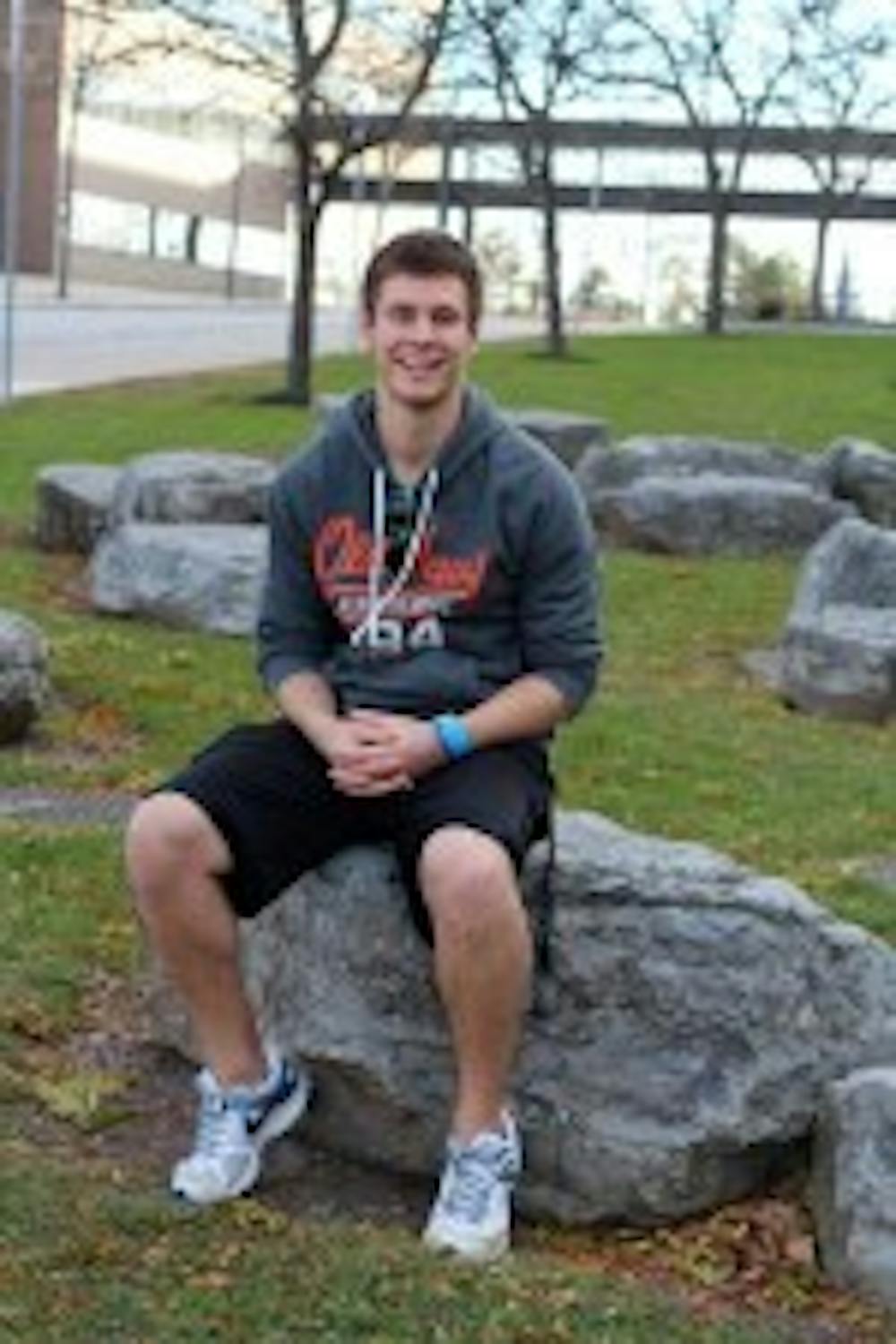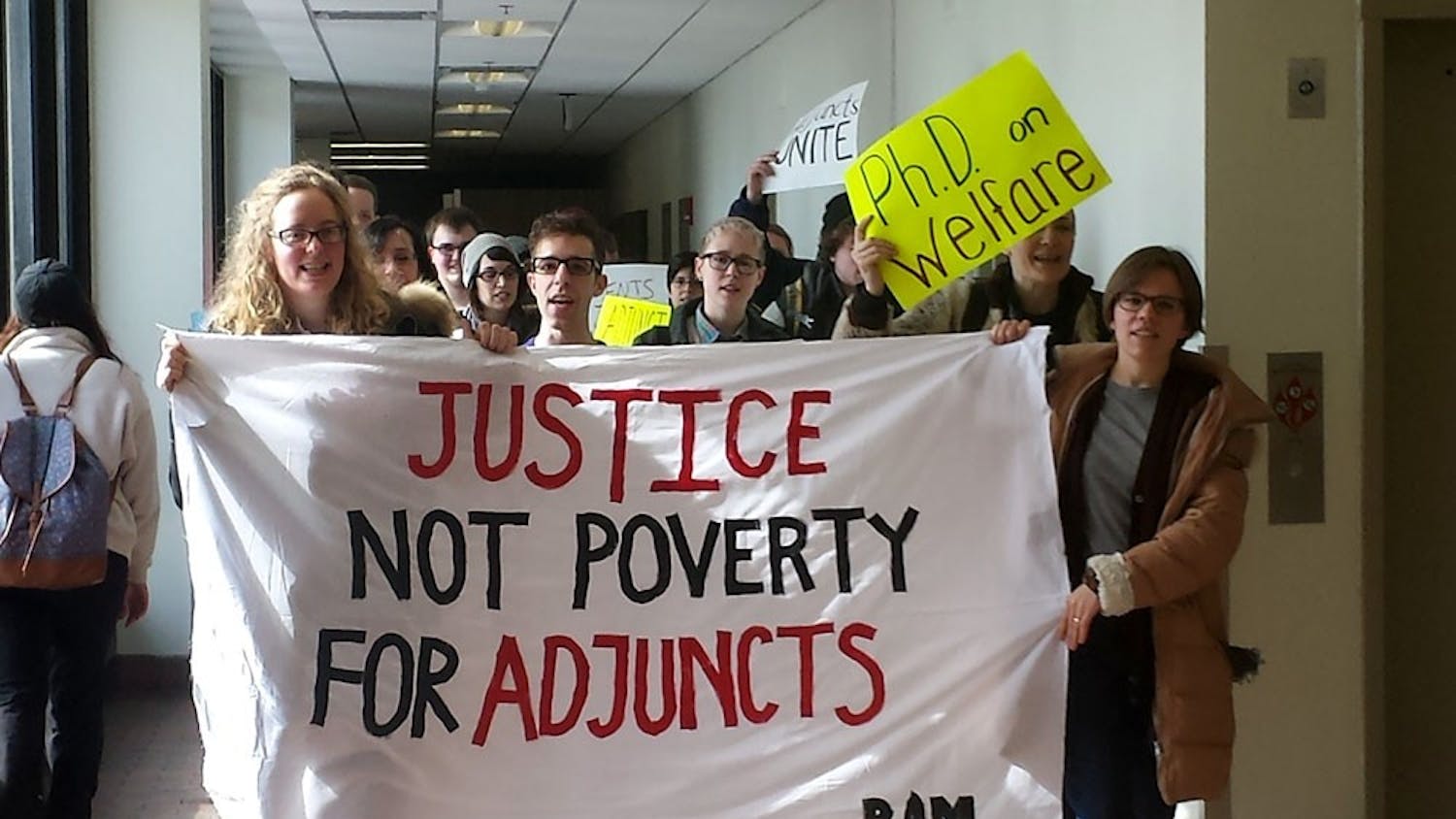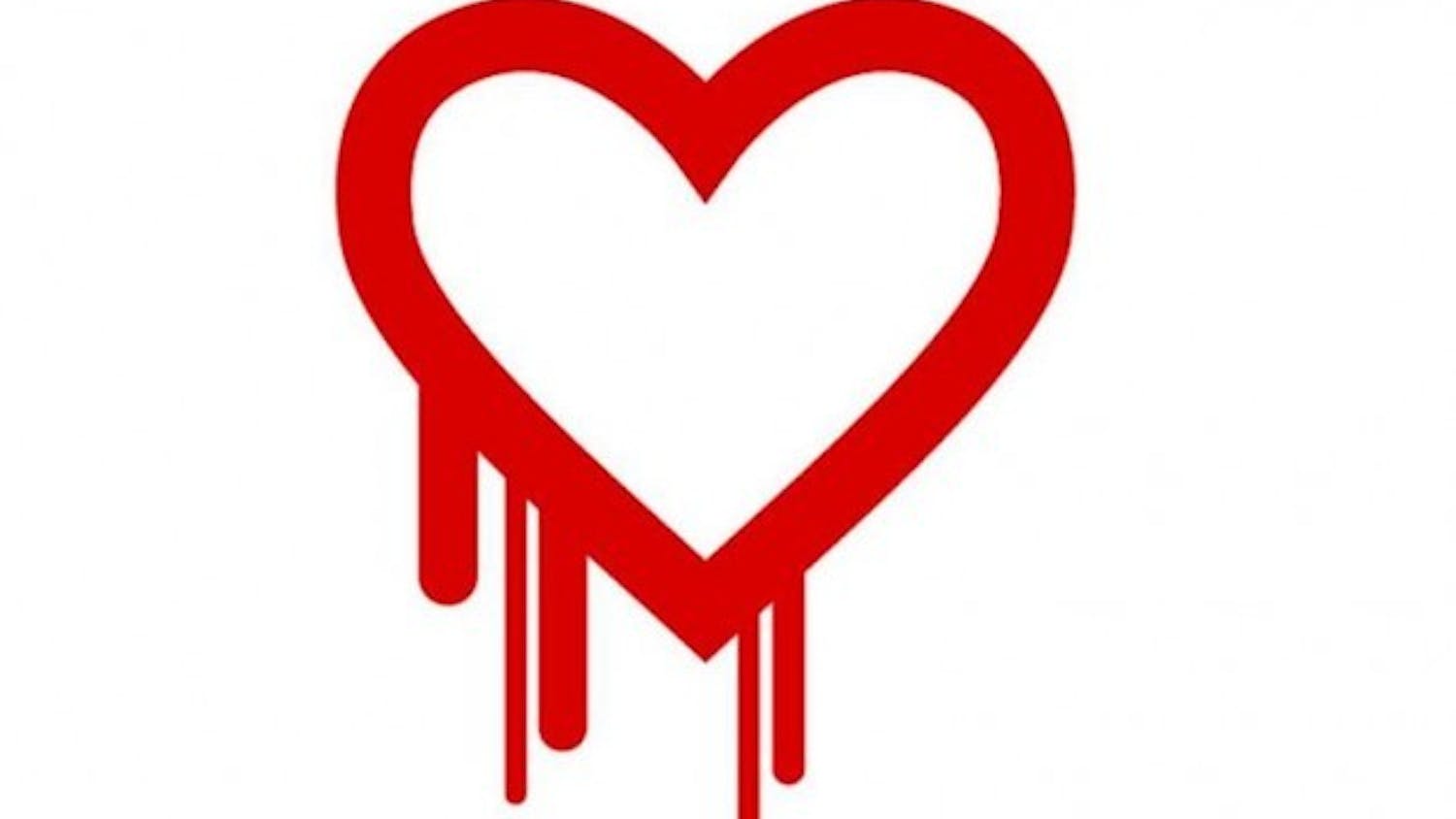Some UB students see hacking as more than just an illegal activity. They see it as an opportunity to display their skills for the future.
Recently, students from various academic departments at UB have taken home thousands of dollars in cash and prizes after prevailing over competitors from across the nation at two separate "hackathons."
At MHacks, a competition that began on Sept. 20, Nate Burgers, a sophomore computer science major, created his own programming language. His work garnered much attention, earning him not only a cash prize for the most technically challenging hack - among other accolades - but also a spot in the top 10 hacks of the entire competition.
At Kent State University's recent hackathon, 'Kent Hack Enough,' a team of four UB students developed a unique add-on for the web browser Google Chrome, revolutionizing the way Internet users navigate pages.
"These students are great ambassadors for UB," said Atri Rudra, associate professor of computer science, in an email. "We know our students are good, but this is a nice way for folks outside of UB and Buffalo to know this secret."
Though depictions of computer hacking as an entirely malicious activity abound in popular culture, they are not entirely accurate. It leaves out the type of work done by participants at hackathons, which is not harmful or illicit. At these events, participants gather to build useful and creative pieces of software from scratch, in hopes of finishing their work in the allotted time.
"Hackathons are fun because they allow you to be creative with computer science," said Mack Ward, a junior computer engineering and mathematics double major, in an email. "Often in class we write straightforward programs to solve some given problems, but rarely do we explore the non-traditional applications of what we are learning. Hackathons give students an opportunity to go outside of their 'programming comfort zone' - to create whatever they want, no questions asked."
Ward was also part of the team that won top honors at Kent Hack Enough. The team included Pritesh Gupta, a sophomore computer science major; Gabriel Holodak, a sophomore computer science major; and Zach Wieand, a freshman computer engineering major.
The members met through the Facebook group 'Buffalo Hackers' before making the trip to Ohio.
On the ride there - shortly after meeting in person for the first time at Davis Hall - the team decided to build a web browser extension called Scrolr. This Google Chrome add-on allows users to scroll up and down web pages using gestures of the head, which are picked up by the user's webcam, without the use of mouse or keyboard. The team's hack was so impressive that the group came in first place overall, receiving $1,000 in cash and $3,000 in credit for Amazon Web Services, which the team members split evenly amongst themselves.
The idea was largely inspired by the desire to not touch a computer's keyboard or mouse when eating or multitasking while browsing the web, according to Gupta. Beyond this trivial use of Scrolr, he added that it does indeed have practical applications for those who may not physically be able to use a keyboard or mouse. Though the extension and its code are freely available online, the group does not intend to spend much time improving or releasing it formally.
MHacks spanned the weekend from Sep. 20-22 and took place atthe University of Michigan. At MHacks, Burgers, working alone, developed his own programming language called "Lark," which won him the 'Best Use of iOS' award, the Andreessen Horowitz prize for the Most Technically Impressive hack and an honor as one of the top 10 hacks overall in the competition that included over 1,200 participants.
"What made [Lark] different from other computer languages is that it allows you to edit an app while it's running," Burgers said in an email. "Traditionally, this kind of thing is impossible."
Burgers, who received a $2,000 cash prize and an Apple iPad Mini for his work at MHacks, said although he plans to eventually go to graduate school, he has received many different job and internship offers due to his work at hackathons.
Ward and Gupta said their participation in hackathons has directly and indirectly opened doors to internships and job opportunities.
Rudra stressed how crucial hackathons are to students' development, saying, "It has been nice to see some of undergraduate algorithms lectures half empty because the students were all at a hackathon."
"Hackathons are complementary to the courses that our students take: they apply the knowledge they gained in different courses to build one single product," Rudra said in an email. "This application is precisely what they will need to do when they go to their jobs (or start their own company)."
Ward echoed Rudra's sentiment. Ward believes hackathons are an essential learning experience for computer science majors. He encourages students interested in the field to attend a hackathon whenever they can.
email: news@ubspectrum.com




